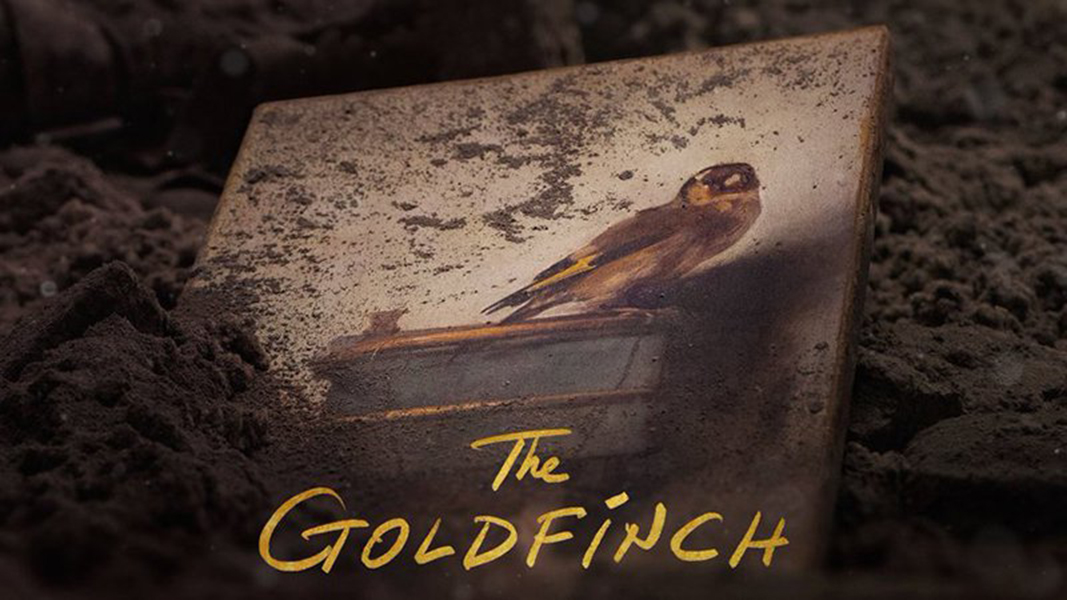Adapting a book to movie form is always a tall order, especially with us rabid bibliophiles ready to froth at the mouth over any changes we don’t deem forgivable. However, the adaptation of The Goldfinch, from Donna Tartt’s novel of the same name, does a great job at this: it keeps as close to the original as possible, taking the most important scenes and reproducing them as accurately and beautifully as it can. The biggest changes come in the way the movie is structured and what had to be left out.
In its simplest form, The Goldfinch is the story of the tragic life of Theodore Decker, who, when he is 13 years old, is in the Metropolitan Museum of Art during a terrorist bombing in which he loses his mother and steals a painting — the eponymous Goldfinch. Theo is later shipped off to his alcoholic father in Las Vegas, still clinging to the stolen painting, his last tie to his mother and former life.
What the movie does strangely with the structure, though, is sprinkle slices of the pivotal bombing scene throughout, rather than beginning with it in its entirety as it does in the book. As one of those froth-at-the-mouth bibliophiles, I found this quite troubling, especially since book Theo so explicitly states that this is the dividing moment of his life into “before and after,” into happiness and misery. By the end, though, it’s clear why this choice was made: by saving Theo’s final moments with his mother for the closing scene, we are able to walk out of the theatre feeling that it ended on a hopeful, even happy note. His mother’s reflection on why Carel Fabritius’ “The Goldfinch” means so much to her neatly ties the movie together, both in terms of plot and Theo’s attachment to the painting.
The biggest flaw in The Goldfinch is that it doesn’t have enough time to focus on relationships. We can’t understand why Theo has such strong feelings for Pippa in adulthood because they rarely interact, and we aren’t in his head. His engagement to Kitsey — which, granted, didn’t make much sense in the book either — seems to come from nowhere and with little explanation. For a person so obsessed with a stolen painting and who clings to it like a lifeline in times of emotional distress, we don’t see him interact all that much with “The Goldfinch” either. Most significantly, though, is that his mother does not exist as a character but instead as a tragedy. We don’t even see her face until the end of the movie, only the back of her as Theo relives the memory of her walking away from him for the final time over and over again. In the novel, we actually see what kind of person Theo’s mother was, and why she was so loved.
The whole movie blew by too quickly for me, which seems odd when its runtime is about two and a half hours, but it makes sense when compared to the novel. This book is an almost 800-page monster. It takes forever to get through the novel with the way Theo’s narration drags on, recording everyday life in meticulous detail. The movie was smart to cut down on this, and certainly had to keep the runtime below five hours, but some of the losses didn’t feel quite worth it. By removing so much of Theo’s adolescence in Vegas, we lose a lot of the nuance and significance of his relationship with Boris. The movie works hard to make clear that they mean a lot to each other, but we don’t gain the same understanding that in this lonely, desolate desert — with neglecting, abusive parents — each other is all they really have, the only safe place they can cling to. In Vegas, Theo is able to leave “The Goldfinch” taped behind his bed and take comfort in something else. And so when Theo leaves and Boris won’t come with him, we don’t have quite the same emotional reaction to it, don’t feel as devastated as we should, and because we are not in Theo’s head we don’t get the lovely, heart-stopping line Tartt delivers where Theo is unable to say the one thing he is too afraid to — “which was, of course, I love you.”
Although Ansel Elgort’s narration as adult Theo was flat and really left something to be desired, the casting overall was excellent. Oakes Fegley and Finn Wolfhard are incredible as young Theo and young Boris respectively, and it’s worth watching just for the two of them. If you’re looking for a somber, artsy film, The Goldfinch is close to perfect.


